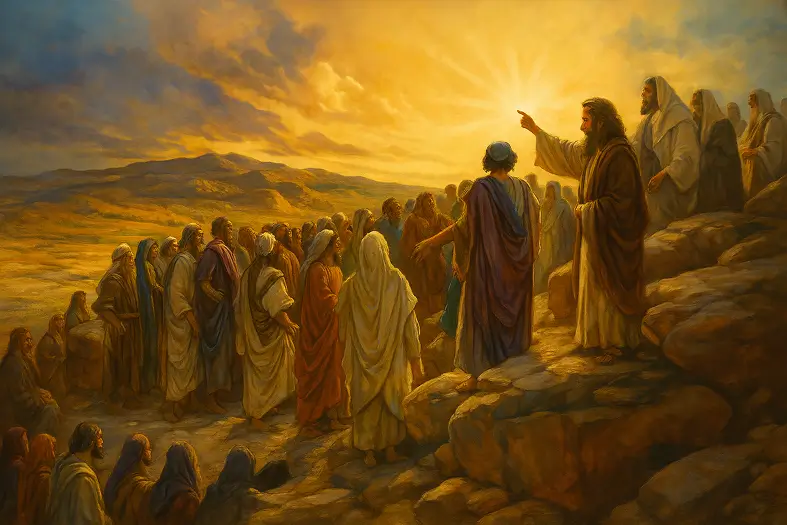


We are commanded to obey a prophet who speaks truthfully in Hashem’s Name.
This mitzvah requires Israel to heed the words of a true prophet, recognizing prophecy as an extension of Torah and Divine will. Rambam (Sefer HaMitzvot, Positive Commandment 172; Hilchot Yesodei HaTorah 7:1–7) explains that once a prophet is established through proper signs, it is a mitzvah to obey him in all instructions — even temporary suspensions of mitzvot (except idolatry).
Sefer HaChinuch (Mitzvah 516) emphasizes that prophecy safeguards Torah, guiding Israel during crises. The Talmud (Sanhedrin 89a) details criteria for a true prophet and warns against ignoring his words. Rashi (Deut. 18:15) interprets the verse as Hashem’s response to Israel’s request at Sinai to hear His word through an intermediary, showing that prophecy reflects Divine compassion. Ramban notes that listening to prophets affirms ongoing revelation, connecting Sinai to later generations.
Commentary & Classical Explanation:
Contrast with False Prophets (Mitzvah 43):
Parallel to Moses at Sinai (Exodus 19–20):
Torah Authority Through the Ages
Leadership Rooted in Divine Mission
Guarding Against False Voices
Chasidic and Mussar Inspiration
Listening to the Voice of Torah Today
Conscience and Prophetic Echo


Associated with belief in and obedience to G‑d’s prophets, as well as reverence for their role in transmitting Divine truth.
Used for mitzvot that reflect Judaism’s foundational principles—belief in G-d, reward and punishment, prophecy, Torah from Heaven, and more. These commandments shape the lens through which all others are understood.
Represents Emunah—the deep, inner trust in Hashem’s presence, oneness, and constant involvement in our lives. This badge symbolizes a heartfelt connection to G-d, rooted in belief even when we cannot see. It is the emotional and spiritual core of many mitzvot.
Signifies awe and reverence toward Hashem—living with awareness of His greatness and presence.
An exclusive badge for the Ten Commandments - עשרת הדיברות given at Sinai: to know and recognize G-d. These commandments form the foundation of all others and reflects the moment of direct Divine revelation.
Mitzvot that define and deepen the relationship between a person and their Creator. These include commandments involving belief, prayer, Shabbat, festivals, sacrifices, and personal holiness — expressions of devotion rooted in divine connection.
Mitzvot that strengthen communal life — showing up, participating, supporting, and belonging. Community is where holiness is shared, prayers are multiplied, and responsibility becomes collective.

Dive into mitzvos, prayer, and Torah study—each section curated to help you learn, reflect, and live with intention. New insights are added regularly, creating an evolving space for spiritual growth.

Explore the 613 mitzvos and uncover the meaning behind each one. Discover practical ways to integrate them into your daily life with insights, sources, and guided reflection.

Learn the structure, depth, and spiritual intent behind Jewish prayer. Dive into morning blessings, Shema, Amidah, and more—with tools to enrich your daily connection.

Each week’s parsha offers timeless wisdom and modern relevance. Explore summaries, key themes, and mitzvah connections to deepen your understanding of the Torah cycle.